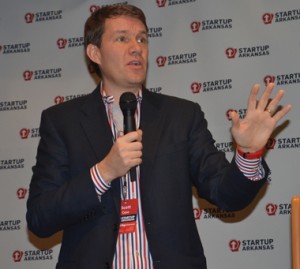 Of course, there are a lot of things you need to do when you’re trying to raise money for your startup. But there are also a lot of things you want to avoid. If you’ve landed a meeting with a potential investor, you don’t want to blow it. Avoid the following 5 “don’ts” and you’ll be on the right path to making a favorable impression:
Of course, there are a lot of things you need to do when you’re trying to raise money for your startup. But there are also a lot of things you want to avoid. If you’ve landed a meeting with a potential investor, you don’t want to blow it. Avoid the following 5 “don’ts” and you’ll be on the right path to making a favorable impression:
1. Don’t raise more money than you will need. You may be tempted to think more is better when it comes to raising capital, but actually this is not true. Of course you’ll want to build in a little cushion, since nothing ever goes exactly according to plan in startup land, but don’t be tempted to create a huge cushion. We’ve seen time and time again that capital efficiency (that is, raising what you need and no more) is a more telling indicator than capital access of your startup’s success. In other words, it’s what you do with your money — not how much you get — that determines your success.
While the amount of capital you’ll need is dependent on the specifics of your company (e.g. your company type/stage), capital efficiency will stand you in good stead regardless. With less capital it’s harder to scale, and that’s a good thing. Scaling too soon forces you to grow and make decisions before your company is ready. Expectations are lower with less capital. Your milestones will be more manageable.
Also, larger amounts of capital lead to unnecessary dilution at a lower valuation. Conversely, smaller amounts of capital allow you to preserve more ownership—and can lead to higher valuation in future rounds.
2. Don’t talk to investors who don’t traditionally invest in your space or stage of development. If an investor has no history of investing in your space or working with companies at your stage of development, don’t go there. If they’re not familiar with your space, there’s just too big of a learning curve. You’ll be working overtime trying to sell them on the value of your offering.
Likewise, there are two major downsides to working with a potential investor who doesn’t have experience with companies in your development stage. First of all, without a relative benchmark, they may have expectations which are unrealistic for your startup. The may want to see you hit milestones which your company is just not ready to hit, or may push you to scale before you’re ready. Secondly, investors offer more than just money. They offer support, wisdom, and connections. So you want to find an investor who will be a valuable member of your growing startup eco-system, starting from wherever you are.
3. Don’t talk to investors who have invested in a company that is a competitor in your same space. This may seem to contradict my previous statement, but it’s just finessing the point. While you don’t want to work with investors who aren’t active in your same space, there’s no sense in talking with an investor who has recently invested in one of your competitors. Many investors will avoid funding competitors, but you can’t depend on this. An investor’s resources run only so deep. You don’t need a built-in conflict of interest getting in the way of your growth.
4. Don’t fail to do your due diligence on an investor prior to meeting them. Underscoring my previous points, you’ll need to do enough research to know what space and company stages the investor has experience with and what specific companies the investor has funded (keeping an eye out for your competitors). Look out for investor activity: has the investor recently made any investments? You also want to know the person behind the investment: who are they? If you can speak with other entrepreneurs they have backed, that can be a helpful way to learn more about investors personally and figure out if they are someone you can work with. If you don’t know this ahead of time, you are just wasting your time and theirs.
5. Don’t wing an investor meeting. If you’re meeting with an investor, it’s never just a casual chat. You are there to pitch. Have your pitch deck ready and be prepared to present it. See my previous post on Pitching Made Perfect for details on exactly what should be included in your pitch deck. Be ready to answer questions—and if you can’t answer a question on the spot, make sure you follow up.
If you can steer clear of these 5 “don’ts,” you’ll be demonstrating to potential investors an understanding of, and a respect for, the funding process. Observe the protocol and you and your company will be in good position to earn reciprocal respect from potential investors.
This post originally appeared on the author’s blog.
David Ehrenberg is the founder and CEO of Early Growth Financial Services, a financial services firm providing a complete suite of financial services to companies at every stage of the development process. He’s a financial expert and startup mentor, whose passion is helping businesses focus on what they do best. Follow David @EarlyGrowthFS.
The Young Entrepreneur Council (YEC) is an invite-only organization comprised of the world’s most promising young entrepreneurs. In partnership with Citi, the YEC recently launched #StartupLab, a free virtual mentorship program that helps millions of entrepreneurs start and grow businesses via live video chats, an expert content library and email lessons.








